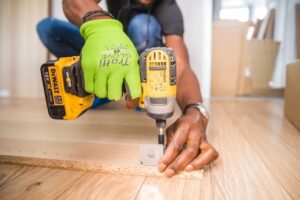
Photo by Victoria Borodinova from Pexels
Living in America has countless perks, but sometimes you need to stay informed about how to protect your family and home during a worst-case scenario. Floods cost Americans money and lives – in 2011, 58 federal flood disaster declarations cost over $8 billion and caused 113 deaths. As global warming starts to take its toll by increasing natural disaster frequencies, it’s more important than ever for you to be prepared and informed about what to do in case of a flood.
Human Preparation
You need to know how at-risk you are of floods; this will depend on your area, with some areas being especially high risk to flash floods or tidal flooding. It’s important to have local numbers at hand for you to phone and ask for advice. A good example of this is how wary Floridians in Gainesville stayed alert during Hurricane Dorian, with some citizens and businesses who suffered from flooding getting immediate 24/7 response from Gainesville water damage restoration, mitigating the risk of long-term damage to their property. You should also make sure you have a good knowledge of your family’s immunization records, as floods can bring disease, and you might need to check you’re immunized.
Item Preparation
You should prepare some supplies in a location that you can easily access and quickly grab if you need to immediately evacuate. Make sure you include any prescriptions and medical equipment with spare power cords or batteries, as well as spare glasses. You will likely want to make sure priceless items like pictures or heirlooms are with you, as well as important paperwork – but you will want to travel light so you could transfer as much as you can electronically. It could be a good idea to look for a fully waterproof safe to quickly put valuables that might be cumbersome or get damaged in a fast evacuation.
During a flood warning, it’s a good idea to fill as much as you can with clean water, so you have a supply in case you get trapped in your house. Clean sinks and bathtubs first with alcohol or bleach, but then fill them to the top so you have a good supply of clean water in the likely event that your water supplies burst or black water makes its way in. You should also turn off as many appliances as possible and bring in outdoor items like furniture or trash can.
Home Preparation
You should consider flood insurance if you’re in a high-risk area. Most home insurance policies don’t cover flood insurance. It’s a good idea to elevate any systems that you don’t want to be damaged, like heating systems, water system units, and electric panels (i.e., don’t have them in the basement). You should also install check valves in your sewer lines, as these valves will stop your sewers from backing up and flooding the house with black water, which can cause illness and even death in some cases due to bacterial infections.


